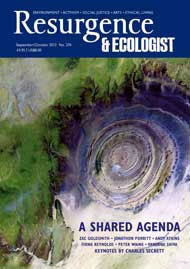Alain de Botton is inspired by religious wisdom to imagine how we could be guided towards a gentler, less individualistic society. Such a society would seek, as religions at their best can, to foster warm relationships rather than competition, to be honestly committed to understanding the human condition and to guide us towards wiser, kinder and more generous-spirited lives.
His book looks for the middle ground between spirituality and rationality, religion and secularity, and liberty and authority. Its inevitably polarising starting point is that no religions are ‘true’, but that they can teach us much about promoting strong communities and compassionate, selfless values.
Alain doesn’t in fact offer a definition of soul, but if it is our essence and the ultimate source of our consciousness and imagination, we can see that modern culture does not always offer it much support. He doesn’t deny that art, culture and education can all nourish and inspire, but he suggests that they are constrained because they assume, unlike religions, that we know how to deal with life already or at least should learn to do so by ourselves.
Although he refers to the “furious institutional intolerance” of religions, he admits that he lets them off the hook by stressing his respect for some of their methods and ignoring the terrible crimes and bigotry of zealots. However, despite some flaws, this book offers a vision with the search for true wellbeing at its heart.
Significantly, the author endorses the Christian view of humankind as fallen – in the sense that we are not born strong or wise, but can only aspire to be both, as best we can, while facing the harshness of the human condition. He then contends that we need a guiding or inspiring hand, such as that which religions provide, to support that task.
His argument thus challenges the modern orthodoxy that liberty, choice and individualism are the highest goods and that the “nanny state” should be deplored as a watered-down version of totalitarianism.
The terrible history of autocracy and dictatorships rightly makes us wary of “guiding hands” and we naturally prefer to make our own mistakes rather than to have them made for us – and if we must have guides, we like to choose them ourselves. However, in choosing governments, we are not offered much variety of approach towards balancing individualism and the public good and nor do rulers often consider that souls are a matter of public concern, so, while a guiding hand imposing its vision is a dangerous idea, we do need more inspiration to help us to imagine and create a gentler world.
Moreover, in a culture that focuses on economic growth over wellbeing and compassion, we need to emphasise and nurture soulful values wherever possible. The author’s suggestions for doing so include communal restaurants where strangers hold structured but highly authentic conversations about their regrets, fears and hopes, and universal days of atonement when we would all apologise, forgive and start afresh.
Alain suggests that schools, universities, museums and art galleries should consciously and explicitly teach us how to live well rather than just acquire knowledge of individual subjects and skills. He also shows that we can learn from religions to be more realistic and to balance messages telling us that everything is possible with a measured pessimism, which can itself promote compassion and humility.
The book reminds us that our society is out of balance. We have much freedom, but we lack wisdom, and we have material aplenty but a lack of spiritual wealth. At the same time, we need stronger communities and the sense of meaning and purpose that comes from belonging to a healthy, sustainable society, which by definition nourishes the soul and creates a virtuous cycle of balanced people, adding to the wisdom of the whole.
For that reason Resurgence – now, of course, Resurgence & Ecologist – will continue to emphasise the spiritual trinity of “soil, soul and society” above the harsher values of an urban, materialist and individualist age. And on the whole this very original book is pointing in that same direction.






